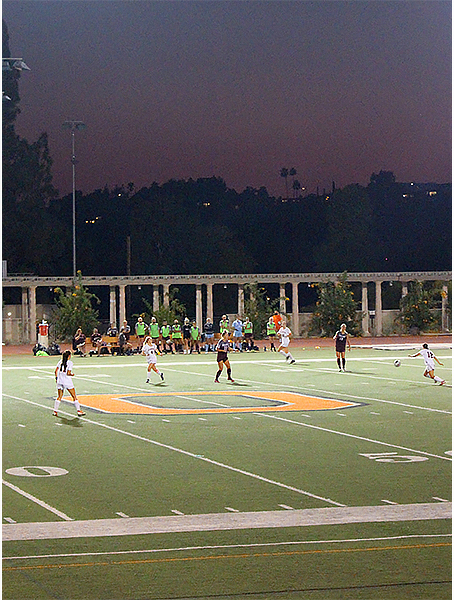
While COVID-19 restrictions halted Occidental’s athletic seasons in their tracks, the pandemic also posed unique challenges for recruiting coordinators as they prepared for an in-person return. According to Senior Assistant Dean of Admissions and Coordinator of Student Athlete Recruitment Jordan Brown, this year’s recruiting yielded successful results in spite of its challenges, with recruited athletes making up around 28 percent of the total incoming first-year student body.
“That’s just a testament to a lot of the really great work that our coaches did,” Brown said.
Brown said the recruitment process normally involves extensive personal interaction between recruiters and prospective students, made impossible due to COVID-19 restrictions.
In addition, according to Dave Foley, assistant coach and recruiting coordinator for the men’s and women’s cross country and track & field teams, prospective students are usually invited to visit campus.
“My goal is to create an environment where it’s like a day in the life of an [Occidental] student,” Foley said. “The two things that sell Occidental are our beautiful campus and the folks on our team.”
According to Brown and Foley, new restrictions meant that coaches had to develop different ways to engage recruits with Occidental and determine athletic and academic potential. But according to Foley, recruiters didn’t feel a unique pressure to compete with other schools for incoming student athletes.
“We told ourselves a lot, ‘This isn’t just an Occidental problem,’” Foley said.
The Occidental athletic department held a number of virtual events for recruits, including a Q&A with Occidental athletes and informational sessions on topics like strength and conditioning, sports medicine and leadership opportunities for athletes according to Brown.
Foley said the cross country and track and field teams also relied heavily on building individual connections when it came to virtual programming, often pairing recruits with coaches and members of the team so they could get a sense for the athletic environment at Occidental.
According to Kiana Kea (sophomore), having virtual contact with one of her future coaches was vital to her decision to join Occidental’s track and field team.
“My coach was extremely helpful,” Kea said. “If I had questions, all I needed to do was email him.”
The loss of two years of competition didn’t just affect recruiting, according to Foley. Only current junior and senior athletes have ever competed for Occidental in person, while high school sports cancellations left many incoming first years and sophomores with less competition experience than usual.
This is true for Kea, who said she is feeling both excited and nervous to start practice, having only ever spent one season on pole vaulting, her main event.
“I am looking forward to it, and I’m scared,” Kea said.
According to Foley, the lack of high school sports seasons due to the pandemic not only affected the experience level of the teams, but also shifted the way that coaches evaluated prospective students. Statistics databases for high school juniors and seniors are blank, posing a challenge when it came to accurately assessing an athlete’s ability, Foley said.
“You just don’t know who’s walking in the door,” Foley said. “When you were a sophomore in high school, you ran this fast in your cross country race, and you’re a first year in college now.”
Foley said in previous years, he generated a set of about 10,000 prospective student athletes for the track and field and cross country programs based on a set of standard performance marks. He would then whittle that number down to around 35. This past year, the number of students meeting his criteria shrunk to around 4,000. In order to solve this discrepancy, the track and cross country teams raised their maximum times for many events, considering students who they may not have considered before the pandemic.
“From a coaching standpoint, I think our expectations are a lot more open ended,” Foley said.
As teams return to competition for the first time in years, Foley said he wants to emphasize the importance of patience.
“It’s gonna get there,” Foley said. “It just might take a little longer, and that’s okay.”
![]()


































